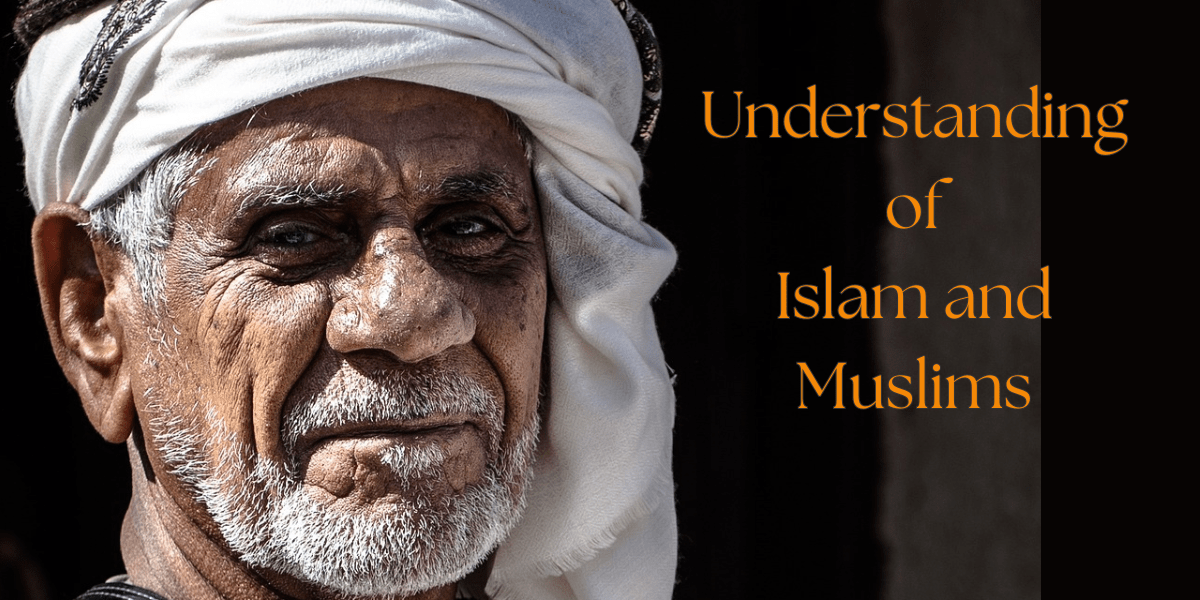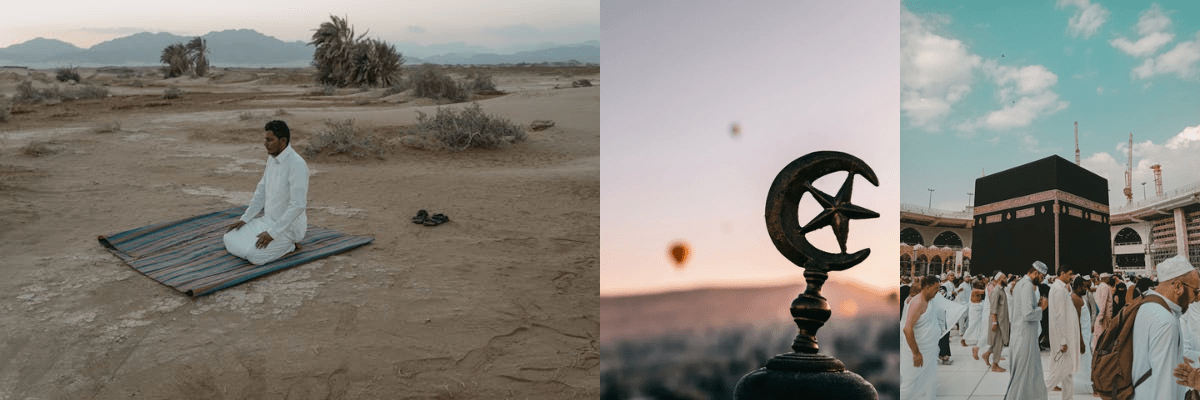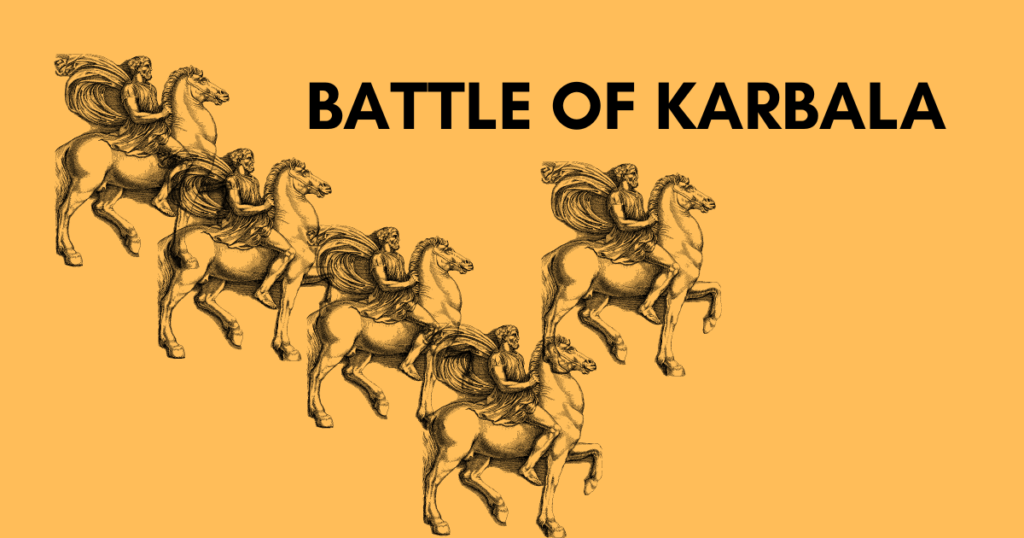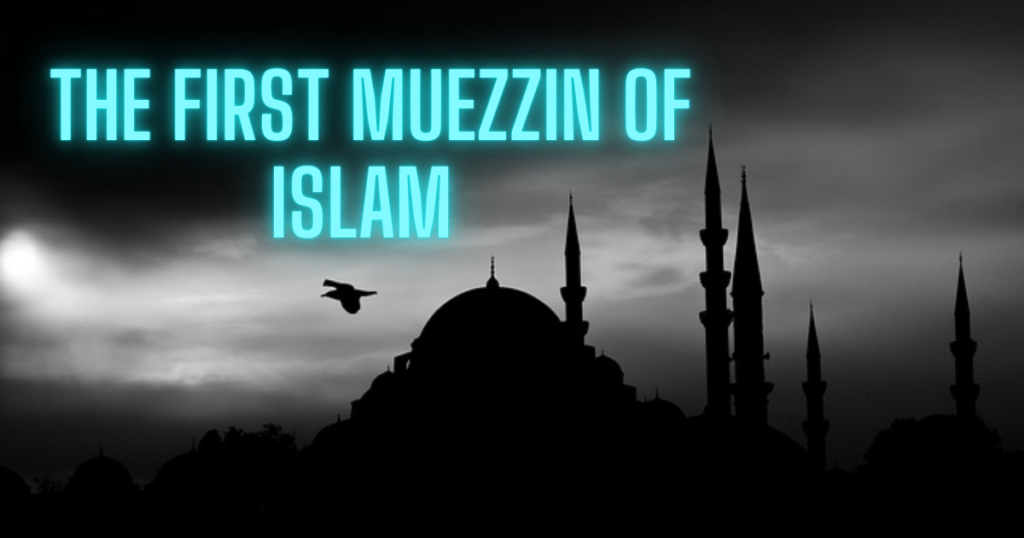
Islam and Muslims, one of the world’s major religions, is often discussed and sometimes misunderstood in contemporary discourse. With over 1.8 billion adherents, it is the second-largest religion globally. Despite its widespread influence, many aspects of Islam remain unfamiliar to non-Muslims. This book, “Understanding Islam and Muslims,” aims to provide a comprehensive and clear exploration of the religion, its practices, and its followers. By delving into the historical, cultural, and spiritual dimensions of Islam, this book seeks to bridge gaps in knowledge and foster a deeper understanding and respect for this rich and diverse faith tradition.
Introduction to Islam

Islam is a monotheistic religion that traces its roots to the 7th century in the Arabian Peninsula. It is based on the belief in one God (Allah in Arabic) and the teachings of the Prophet Muhammad, who is considered the last prophet in a long line of messengers that includes figures such as Abraham, Moses, and Jesus. The term “Islam” itself means “submission” or “surrender” to the will of God, reflecting the central tenet of the faith: submission to Allah’s divine will.
The foundations of Islam are built upon the Quran, the holy book of Islam, which Muslims believe to be the literal word of God as revealed to Muhammad (PBUH). Alongside the Quran, the Hadith, which are collections of the sayings and actions of Muhammad, provide further guidance on living a life in accordance with Islamic principles.
The Origin and Spread of Islam
Islam began in the early 7th century in Mecca, a city in present-day Saudi Arabia. The social and religious context of pre-Islamic Arabia was one of polytheism and tribalism. The revelation of the Quran to Muhammad over a period of 23 years marked the beginning of a profound transformation in the region. Muhammad’s teachings initially faced resistance, but gradually gained a following, leading to the establishment of a unified Islamic community.
After Muhammad’s death in 632 CE, Islam expanded rapidly beyond the Arabian Peninsula. The early caliphs, who were the political and religious successors to Muhammad, led military campaigns that resulted in the spread of Islam throughout the Middle East, North Africa, and parts of Europe and Asia. This expansion was not only through conquest but also through trade, intermarriage, and missionary activities.
Core Tenets of Islam
Islamic theology is centered around the belief in one God (Tawhid), who is all-powerful, all-knowing, and merciful. Muslims believe that life is a test of obedience to Allah’s will and that everyone will be judged based on their actions in the afterlife. The concept of prophethood is integral to Islam, with Muhammad being the final prophet who brought the complete and final revelation to humanity.
The Shahada, or the declaration of faith, encapsulates the core belief of Islam: “There is no god but Allah, and Muhammad is the messenger of Allah.” This simple yet profound statement is a fundamental aspect of Muslim identity and is recited in daily prayers and significant life moments.
The Importance of Community
Community (Ummah) plays a vital role in Islam. Muslims are encouraged to support one another, work together for the common good, and maintain social justice. The concept of Ummah transcends ethnic, racial, and national boundaries, promoting a sense of global brotherhood and unity among Muslims.
Practices and Rituals
Islamic practices and rituals are designed to cultivate a strong relationship with God and foster a disciplined, ethical lifestyle. These practices are outlined in the Five Pillars of Islam, which will be discussed in detail in later chapters. They include the declaration of faith, prayer, fasting, almsgiving, and pilgrimage.
Diversity within Islam
While the fundamental beliefs and practices of Islam are consistent, there is significant diversity within the Muslim community. Cultural, linguistic, and historical factors have shaped various expressions of Islam around the world. This diversity is reflected in different traditions, schools of thought, and sects within Islam.
The Life of Prophet Muhammad

Prophet Muhammad’s life is central to understanding Islam. Born in 570 CE in Mecca, Muhammad belonged to the Quraysh tribe. Orphaned at a young age, he was raised by his grandfather and later by his uncle. Muhammad became known for his honesty and integrity, earning the nickname Al-Amin (the Trustworthy).
Early Life and Revelation
At the age of 40, during a retreat in the cave of Hira, Muhammad received the first revelation from Allah through the Angel Gabriel. This event marked the beginning of his prophetic mission. Over the next 23 years, Muhammad continued to receive revelations that would constitute the Quran.
Challenges and Triumphs
Muhammad faced considerable opposition from the Quraysh leaders who felt threatened by his message of monotheism. Despite persecution, he gained followers who believed in his message. In 622 CE, Muhammad and his followers migrated to Medina in an event known as the Hijra, marking the beginning of the Islamic calendar. In Medina, Muhammad established a cohesive Muslim community and laid down the foundations of an Islamic state.
Legacy
Muhammad’s teachings and example (Sunnah) continue to guide Muslims in their daily lives. His life is studied and emulated by Muslims worldwide, and his impact on the course of history is profound.
Islam’s Holy Scripture

The Quran is considered the ultimate source of guidance for Muslims. It is believed to be the literal word of God, revealed to Muhammad over 23 years. The Quran addresses various aspects of life, including theology, morality, law, and personal conduct. It is written in classical Arabic and is divided into 114 chapters (surahs), which vary in length and thematic content.
The Structure and Language of the Quran
The Quran’s language is regarded as the highest form of Arabic prose. Its poetic and profound style has had a lasting influence on Arabic literature and language. Muslims recite the Quran in its original Arabic during prayers and study its translations and interpretations to understand its meanings.
Themes and Messages
The central themes of the Quran include the oneness of God, the importance of following divine guidance, the consequences of good and bad actions, and the significance of justice and compassion. The Quran also contains stories of previous prophets and communities, providing moral and spiritual lessons.
The Role of the Quran in Muslim Life
The Quran plays a pivotal role in the daily lives of Muslims. It is recited in prayers, memorized by millions (known as Hafiz), and serves as a source of spiritual solace and moral guidance. Muslims turn to the Quran for answers to life’s questions and challenges, seeking to align their lives with its teachings.
Core Beliefs of Islam

The core beliefs of Islam, known as the Articles of Faith, form the foundation of a Muslim’s faith and practice. These include belief in Allah, angels, divine books, prophets, the Day of Judgment, and predestination. Each of these beliefs is essential to understanding the Islamic worldview and how Muslims perceive their place in the universe.
Belief in Allah
The belief in the absolute oneness of Allah is the cornerstone of Islamic faith. Allah is viewed as the creator, sustainer, and ruler of the universe, possessing perfect attributes of knowledge, power, and mercy. This belief shapes a Muslim’s relationship with God, emphasizing devotion, obedience, and trust.
Belief in Angels
Angels in Islam are spiritual beings created by Allah to perform various tasks. They are considered messengers, protectors, and recorders of human deeds. Prominent angels include Gabriel, who delivered the Quran to Muhammad, and Michael, who provides sustenance.
Belief in Divine Books
Muslims believe that Allah revealed divine books to various prophets as guidance for humanity. These include the Torah given to Moses, the Psalms given to David, the Gospel given to Jesus, and the Quran given to Muhammad. The Quran is considered the final and complete revelation.
Belief in Prophets
Prophets in Islam are messengers chosen by Allah to convey His guidance to humanity. Muslims believe in a long line of prophets, starting with Adam and ending with Muhammad. Each prophet delivered the same essential message of monotheism and righteousness, though specific laws and practices varied.
Belief in the Day of Judgment
The Day of Judgment is a fundamental belief in Islam, where all individuals will be resurrected and held accountable for their actions. This belief instills a sense of moral responsibility and encourages ethical behavior, as Muslims strive to attain a favorable judgment and eternal paradise.
Belief in Predestination
Muslims believe in Qadar (predestination), the concept that Allah has knowledge and control over all events. This belief does not negate free will but emphasizes that Allah’s wisdom and plan encompass all aspects of existence. Muslims are encouraged to trust in Allah’s plan while striving to make righteous choices.
The Quran: Islam’s Holy Scripture

The Quran holds a place of unparalleled importance in the hearts and lives of Muslims around the world. Revered as the literal word of God, it serves as the ultimate source of guidance in all aspects of life. This chapter delves into the Quran’s structure, themes, and its pivotal role in shaping Islamic faith and practice.
Structure and Compilation
The Quran is composed of 114 chapters known as surahs, which vary in length from a few verses to several pages. These surahs are further divided into verses (ayahs). The arrangement of the Quran is unique; it is not organized chronologically, but rather by the length of the surahs, with longer surahs generally appearing earlier in the text. The compilation of the Quran as a single, cohesive book was completed shortly after the death of Prophet Muhammad by his companions, who meticulously gathered and preserved the revelations.
Themes and Content
The Quran addresses a wide array of themes, reflecting its role as a comprehensive guide for human conduct. Key themes include:
- Monotheism (Tawhid): The Quran repeatedly emphasizes the oneness of God, urging believers to worship Allah alone and reject all forms of idolatry.
- Prophethood: The Quran recounts the stories of various prophets, highlighting their missions and the challenges they faced. These narratives provide moral and spiritual lessons for believers.
- Ethics and Morality: The Quran offers guidance on ethical behavior, social justice, and the importance of virtues such as honesty, compassion, and humility.
- Law and Governance: Various surahs address legal principles and social issues, offering a framework for justice and equity in society.
- The Afterlife: The Quran vividly describes the concepts of heaven (Jannah) and hell (Jahannam), emphasizing the consequences of one’s actions in this life.
Language and Style
The Quran is written in classical Arabic, known for its eloquence and poetic beauty. Its linguistic style is considered miraculous and inimitable, inspiring both reverence and scholarly study. The Quran’s recitation (Tajweed) is a specialized art, with specific rules governing pronunciation, rhythm, and intonation to preserve its original sound and meaning.
Interpretation and Exegesis
Understanding the Quran requires careful interpretation, known as Tafsir. Scholars have developed extensive commentaries to explain the context and meanings of the verses. Tafsir encompasses various approaches, including linguistic analysis, historical context, and theological insights, helping Muslims apply the Quranic guidance to contemporary issues.
The Role of the Quran in Daily Life
For Muslims, the Quran is not merely a text to be read; it is a guide to be lived. Its verses are recited in daily prayers, memorized, and reflected upon. Muslims seek to embody its teachings in their personal conduct, relationships, and societal interactions. The Quran also plays a crucial role in various rituals and life events, from birth to death, infusing everyday life with spiritual significance.
The Quran and Science
One of the intriguing aspects of the Quran is its references to natural phenomena and the universe. Many Muslims find that these references, often considered ahead of their time, align with modern scientific discoveries. This perceived harmony between the Quran and science reinforces their faith and inspires further exploration of the natural world.
Core Beliefs of Islam

The core beliefs of Islam, known as the Articles of Faith, form the foundation of a Muslim’s faith and practice. These include belief in Allah, angels, divine books, prophets, the Day of Judgment, and predestination. Each of these beliefs is essential to understanding the Islamic worldview and how Muslims perceive their place in the universe.
Belief in Allah
The belief in the absolute oneness of Allah is the cornerstone of Islamic faith. Allah is viewed as the creator, sustainer, and ruler of the universe, possessing perfect attributes of knowledge, power, and mercy. This belief shapes a Muslim’s relationship with God, emphasizing devotion, obedience, and trust.
Belief in Angels
Angels in Islam are spiritual beings created by Allah to perform various tasks. They are considered messengers, protectors, and recorders of human deeds. Prominent angels include Gabriel, who delivered the Quran to Muhammad, and Michael, who provides sustenance.
Belief in Divine Books
Muslims believe that Allah revealed divine books to various prophets as guidance for humanity. These include the Torah given to Moses, the Psalms given to David, the Gospel given to Jesus, and the Quran given to Muhammad. The Quran is considered the final and complete revelation.
Belief in Prophets
Prophets in Islam are messengers chosen by Allah to convey His guidance to humanity. Muslims believe in a long line of prophets, starting with Adam and ending with Muhammad. Each prophet delivered the same essential message of monotheism and righteousness, though specific laws and practices varied.
Belief in the Day of Judgment
The Day of Judgment is a fundamental belief in Islam, where all individuals will be resurrected and held accountable for their actions. This belief instills a sense of moral responsibility and encourages ethical behavior, as Muslims strive to attain a favorable judgment and eternal paradise.
Belief in Predestination
Muslims believe in Qadar (predestination), the concept that Allah has knowledge and control over all events. This belief does not negate free will but emphasizes that Allah’s wisdom and plan encompass all aspects of existence. Muslims are encouraged to trust in Allah’s plan while striving to make righteous choices.
FAQs: Understanding Islam and Muslims
What is Islam?
Islam is a monotheistic Abrahamic religion founded on the teachings of the Prophet Muhammad, who is considered the last prophet in a line of prophets that includes Adam, Abraham, Moses, and Jesus. The central religious text of Islam is the Quran, which Muslims believe to be a revelation from God (Allah in Arabic).
Who are Muslims?
Muslims are followers of Islam. They believe in one God (Allah) and follow the teachings and practices as prescribed by the Quran and the Hadith (sayings and actions of Prophet Muhammad). There are over 1.8 billion Muslims worldwide, making Islam the second-largest religion globally.
What are the Five Pillars of Islam?
The Five Pillars of Islam are the core practices that every Muslim is expected to perform:
- Shahada (Faith): The declaration of faith, stating that there is no god but Allah, and Muhammad is His prophet.
- Salah (Prayer): Performing the five daily prayers facing the Kaaba in Mecca.
- Zakat (Charity): Giving a portion of one’s wealth to the needy, typically 2.5% of savings annually.
- Sawm (Fasting): Fasting during the month of Ramadan from dawn until sunset.
- Hajj (Pilgrimage): Making a pilgrimage to Mecca at least once in a lifetime, if physically and financially able.
What is the Quran?
The Quran is the holy book of Islam, believed by Muslims to be the literal word of God as revealed to Prophet Muhammad over 23 years. It is written in Arabic and divided into 114 chapters, known as surahs.
What is the significance of Prophet Muhammad in Islam?
Prophet Muhammad is regarded as the final prophet in Islam. Born in Mecca in 570 CE, he received revelations from God through the angel Gabriel, which were later compiled into the Quran. His life and teachings are considered a model for Muslims to follow.
What are some common misconceptions about Islam?
Some common misconceptions include:
- Islam promotes violence: Islam, like other major religions, teaches peace and compassion. The actions of a minority of extremists do not represent the beliefs of the vast majority of Muslims.
- Muslim women are oppressed: Cultural practices in some regions may lead to the oppression of women, but Islam itself grants women many rights and freedoms, including the right to education, work, and inheritance.
- All Muslims are Arabs: While Islam originated in the Arabian Peninsula, the majority of Muslims are not Arab. Large Muslim populations exist in countries like Indonesia, Pakistan, India, and Nigeria.
What is the role of women in Islam?
Women in Islam are regarded with respect and dignity. They have rights to education, inheritance, and participation in social and political life. However, cultural practices and interpretations of Islamic teachings can vary widely, sometimes affecting women’s rights differently in various regions.
What are the main sects within Islam?
The two main sects within Islam are Sunni and Shia:
- Sunni Islam: The largest branch of Islam, Sunnis believe that the community should select the Prophet Muhammad’s successor (caliph). Sunni Islam emphasizes the role of the consensus of the Muslim community.
- Shia Islam: Shia Muslims believe that leadership should have stayed within the Prophet’s family, specifically favoring Ali, Muhammad’s cousin and son-in-law, as his rightful successor. Shia Islam places significant emphasis on the authority of the imams.
Both sects share fundamental beliefs and practices but differ in aspects of theology, law, and religious leadership.
What is Jihad?
Jihad is an Arabic word meaning “struggle” or “striving.” In Islam, it refers to both personal and communal efforts to live a righteous life:
- Greater Jihad: The internal, spiritual struggle to follow Islamic teachings and lead a virtuous life.
- Lesser Jihad: The external effort to protect the Muslim community, which can include defensive warfare. However, it does not condone acts of terrorism or aggression against innocents.
How do Muslims view other religions?
Islam teaches respect for all Abrahamic religions (Judaism and Christianity) and their prophets. Muslims believe in the same God worshipped by Jews and Christians and acknowledge the Torah and the Bible as earlier revelations from God. The Quran encourages peaceful coexistence and dialogue with people of all faiths.
What is the significance of Mecca and Medina?
Mecca and Medina are the two holiest cities in Islam:
- Mecca: The birthplace of Prophet Muhammad and the site of the Kaaba, the most sacred structure in Islam. Muslims face Mecca during their prayers and undertake the Hajj pilgrimage to this city.
- Medina: The city where Muhammad and his followers migrated (Hijra) and where he is buried. It is the location of the Prophet’s Mosque, a major pilgrimage site.
What are some common Islamic customs and etiquette?
Islamic customs and etiquette vary widely across cultures, but some common practices include:
- Greetings: Muslims greet each other with “As-salamu alaykum” (Peace be upon you), with the response being “Wa alaykum as-salam” (And peace be upon you).
- Modesty: Dressing modestly is emphasized, with specific guidelines for both men and women.
- Hospitality: Hospitality is highly valued, and guests are often treated with great respect and generosity.
- Dietary laws: Muslims follow dietary laws that include the prohibition of pork and alcohol, and the requirement to consume halal (permissible) food.
How do Muslims practice charity?
Charity is a fundamental aspect of Islam, reflected in various practices:
- Zakat: One of the Five Pillars, it requires Muslims to give 2.5% of their savings to those in need annually.
- Sadaqah: Voluntary charity given at any time and in any amount, which can include acts of kindness and support beyond financial aid.
- Waqf: An endowment made by a Muslim to a religious, educational, or charitable cause.
What is the significance of Ramadan?
Ramadan is the ninth month of the Islamic lunar calendar and is observed by Muslims worldwide as a month of fasting, prayer, reflection, and community. During Ramadan, Muslims fast from dawn to sunset, refraining from food, drink, smoking, and marital relations. The fast is intended to purify the soul, develop self-discipline, and empathize with the less fortunate. The month culminates in the celebration of Eid al-Fitr.
How do Muslims conduct prayers?
Prayers (Salah) are performed five times a day at prescribed times: at dawn (Fajr), noon (Dhuhr), mid-afternoon (Asr), sunset (Maghrib), and evening (Isha). Each prayer involves specific physical postures and recitations from the Quran. Muslims pray facing the Kaaba in Mecca and often perform these prayers in congregation, especially on Fridays for the Jumu’ah (Friday prayer).
What is the Islamic view on the afterlife?
In Islam, belief in the afterlife is a fundamental part of faith. Muslims believe in life after death where individuals are judged by God based on their deeds:
- Heaven (Jannah): A place of eternal bliss and reward for those who have led righteous lives and followed God’s guidance.
- Hell (Jahannam): A place of punishment for those who have rejected faith and led sinful lives. However, many Muslims believe that mercy and forgiveness from God can lead to eventual redemption and entrance to Heaven.



